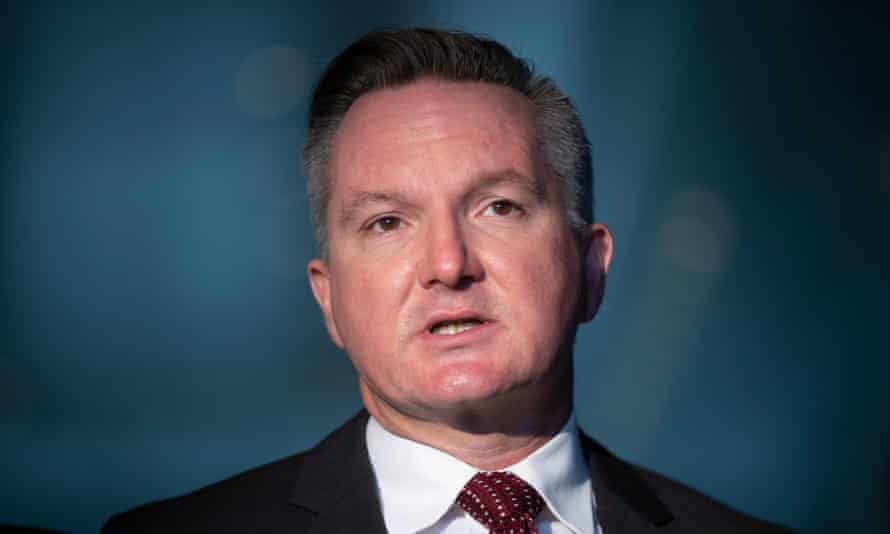Extract from The Guardian
Chris Bowen says taxpayer-funded proposal looks like an attempt to ‘continue the climate wars’ or ‘reward the major Liberal donor who owns the Kurri Kurri site’
Why is Australia building a $600m gas power plant as world experts warn against fossil fuels?
Morrison government to fund $600m gas-fired power plant in NSW Hunter region

Last modified on Wed 19 May 2021 17.04 AEST
Labor is demanding the Morrison government urgently release the business case for a new taxpayer-funded gas plant in the Hunter Valley, saying the Coalition’s $600m proposal at Kurri Kurri isn’t justified by the economics or the engineering.
While the former shadow resources minister and Hunter MP Joel Fitzgibbon rushed to endorse the proposal, the shadow climate change minister Chris Bowen told reporters on Wednesday there was now an urgent imperative to release the business case for the gas plant given the government intended to spend $600m “of taxpayer money on a plant which his own experts don’t support”.
Bowen said Tuesday night’s announcement looked “like a cynical attempt to pick a fight on gas and continue the climate wars, or to reward the major Liberal donor who owns the Kurri Kurri site”.
“Labor supports an ongoing role for gas in firming and peaking electricity supply, but gas projects that stack up will be funded by the private sector, not taxpayers,” Bowen said.
The new gas plant in the Hunter has been mooted for months. Confirmation came four days before a state byelection in the Upper Hunter.
It coincided with the International Energy Agency warning in a major report that new coal, oil and gas investments needed to stop this year if the world was to stay within safe limits of global heating.
While Scott Morrison declared on Wednesday the Kurri Kurri proposal was needed to “keep the pressure down on electricity prices across New South Wales, in particular” the new plant is expected to be powered initially by diesel.
Multiple energy experts have pointed out that gas and diesel are significantly more expensive than alternatives currently available in the energy market. According to an environmental impact statement lodged with the NSW government, the Kurri Kurri plant is expected to run at just 2% of its full capacity across the year, filling gaps at times of peak demand.
The Kurri Kurri site was previously an aluminium smelter. It was bought by Hunter Valley property developers Jeff McCloy and John Stevens in 2020. Officials in the federal energy department were asked last month whether they were aware that McCloy “was found by NSW Icac to have made illegal donations to Liberal party politicians?” The officials said they were unaware of that history.
The Australian Energy Council, which represents electricity and gas wholesalers and retailers, said it was committed to working with the Morrison government to solve any dispatchability issues in the power grid during the transition to low-emissions energy.
But the council’s chief executive, Sarah McNamara, noted: “We are seeing more and more investment driven by government backing, rather than by market dynamics and independent expert assessments of what is actually needed.”
McNamara said the constant government intervention made it difficult for the private sector “to make final investment decisions”.
“It is also still not clear why an additional 1,000MW of capacity is required to compensate for the closure of Liddell,” she said.
“The market operator’s analysis does not support that assertion, and recent developments in NSW, including that state’s energy plan and the announcement of the expansion of the Tallawarra power station are relevant.”
The Clean Energy Council described the government’s decision as “reckless” and said it undermined efforts “to deliver lower-cost power, reduce emissions and build a reliable energy system”.
Its chief executive, Kane Thornton, said 14 gigawatts of solar and wind had been built over the past three years, and there had been new commitments to build 600 megawatts of large batteries in the past quarter alone, roughly equivalent in capacity to the Kurri Kurri plant. He said the council’s recent analysis had found battery storage was now 30% cheaper than gas-fired “peaking” plants and performed a similar role.
Tony Wood, energy program director with the Grattan Institute, said the Kurri Kurri plant was “just not necessary”. “It’s not necessary for prices, it’s not necessary for reliability and it’s not necessary to bring down emissions,” he said.
Fitzgibbon – who has been at odds with colleagues about climate and energy policy since Labor lost the 2019 election, and he suffered a significant negative swing in his seat – told Guardian Australia he was happy to support the Kurri Kurri project.
Fitzgibbon declared the Morrison government had created market failure and was now obliged to fix it. “I’m also very confident that Snowy Hydro will make a strong return on its investment,” the Labor MP said.
The shadow treasurer, Jim Chalmers, told the National Press Club he understood that Fitzgibbon had a “point of view as a local member, and as someone who’s had a longstanding interest in these issues” and that was “fine”.
But he said Labor’s view was $600m “is not small change – it’s a massive investment in one project”.
“There might be other worthy projects around the country, [so] let’s see the business case for this one in particular.”
No comments:
Post a Comment